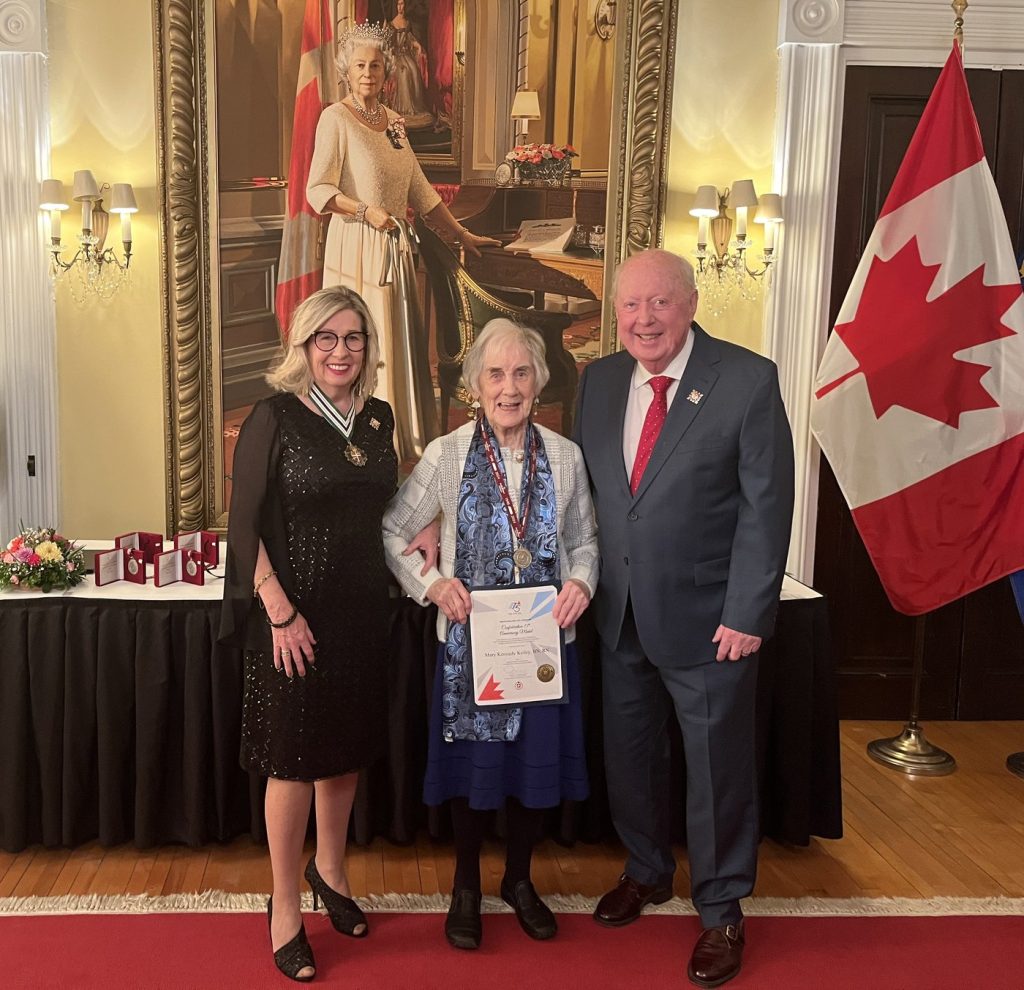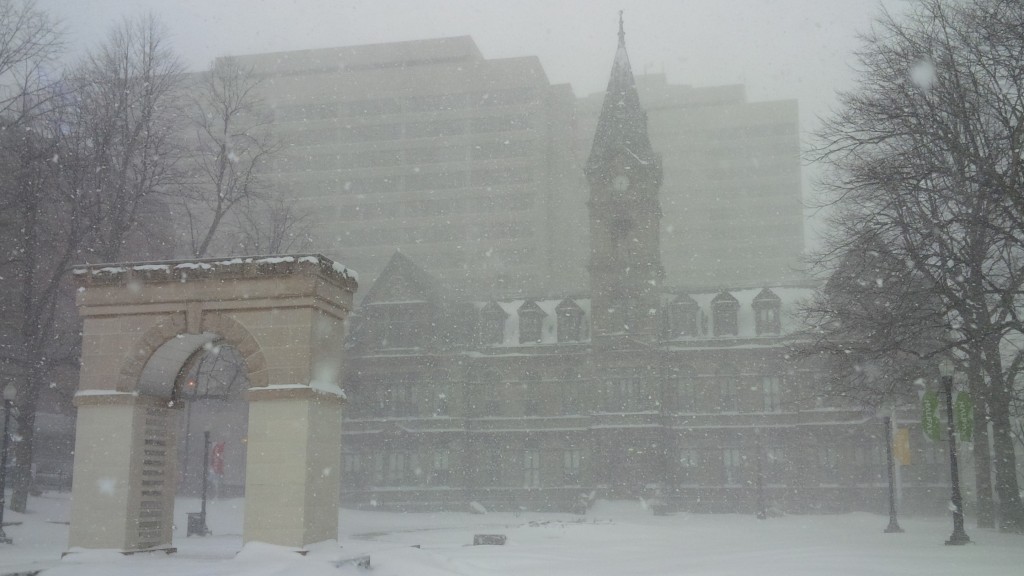Newfoundland woman washed sick patients’ hair every Saturday for more than 20 years

Posted Dec 20, 2024 05:00:05 AM.
Last Updated Dec 20, 2024 05:01:38 AM.
ST. JOHN’S, N.L. — A retired nurse and teacher in Newfoundland was honoured this week for her volunteer work, which included more than two decades washing the hair of bedridden hospital patients.
It was a stay at a sanatorium for tuberculosis in the 1960s, when she was forbidden from washing her own hair, that led Mary Kennedy Keiley to vow she would someday help patients in similar straits.
And just weeks after her 1994 retirement, she arrived at the front steps of St. Clare’s Mercy Hospital in St. John’s, N.L., carrying shampoo and a plastic washing tray. She returned every Saturday at 9 a.m., shampoo in hand, for well over 20 years.
“I don’t take any credit for starting it or doing it, because I loved it so much,” Kennedy Keiley, 89, said in an interview this week. “I just loved going in there. And seeing them before and then after, it was so worthwhile.”
She was one of 18 people awarded a Confederation Medal on Tuesday by the province’s lieutenant-governor. The medal recognizes people who made significant contributions to their community in the 75 years since Newfoundland and Labrador became part of Canada.
Kennedy Keiley began her career in 1959, after graduating from the nursing school run primarily by nuns at St. Clare’s, a 102-year-old hospital in the capital’s downtown.
She had not been working long when the results of a compulsory annual X-ray prompted a doctor to send her to a sanatorium for tuberculosis patients. She was there for six lonely months, she said.
Doctors at the time believed that for lungs to heal, patients needed to be at rest and remain still — they weren’t even allowed to wash their hair. The task fell to nurses, who rarely had time. One night, after three weeks with dirty hair, Kennedy Keiley snuck into the bathroom and grabbed the shampoo.
“That night, I said, ‘If I survive this and I ever get back on my feet and have the time, I’m going to wash patients’ hair,'” she said. “It never left me.”
At first, some St. Clare’s nurses were upset about her volunteer hair-washing, saying she was doing their job. But because they were usually too busy to tend to greasy locks, the dispute was quickly resolved, Kennedy Keiley said.
Another retired nurse, Joanne Noonan Hogan, soon joined her hair-washing mission. The two barely missed a Saturday, and Kennedy Keiley figures they washed about eight heads per visit. At that rate, they’ve shampooed more than 8,000 people.
The work required patience and skill. The women gently bent the patient’s head forward over the washing tray, which had a trough that emptied water into a container on the floor — typically an empty salt beef bucket. They used a jug with a spout to pour the water slowly, avoiding any stitches, tubes or sensitive ears.
Kennedy Keiley still has a Christmas card from a patient she shampooed in 2013, and she remembers many of the people she cared for, such as the elderly man from Salvage, N.L., who was moved by her service.
“When I was finished, he said, ‘My dear, there’ll be a lot of people at your funeral,'” she said, laughing. “That was the way he said thank you.”
She also shampooed an ailing, 100-year-old Sister Mary Xavierius, who had been head of the hospital’s nursing school when Kennedy Keiley was a student there. Sister Mary died later that day, and her last known words, Kennedy Keiley said, were those spoken to the hair-washing duo: “I’m so lucky to have — and I’m so fond of — the women in my life.”
When the wash was complete, Kennedy Keiley told her, “You’re all ready for heaven.”
Kennedy Keiley did the work through St. Clare’s Mercy Hospital auxiliary group, a team of volunteers who help care for patients and run the hospital’s gift shop. She stopped the weekly shampoos during the pandemic, but her initiative inspired the auxiliary to create a volunteer hair-washing program. She also volunteered for decades with her nursing school’s alumni group.
She was uneasy accepting accolades for her kindness, including the Confederation Medal this week. But she hopes the attention will encourage other retired nurses and teachers to volunteer with their local hospitals to help care for patients.
“It makes such a difference to patient care,” she said. “I remember many, many, many Saturdays walking into a ward and saying, ‘Any ladies in here need their hair washed?’ And everyone would say, ‘Mine, mine, mine!'”
“They loved it,” she added.
This report by The Canadian Press was first published Dec. 20, 2024.
Sarah Smellie, The Canadian Press








